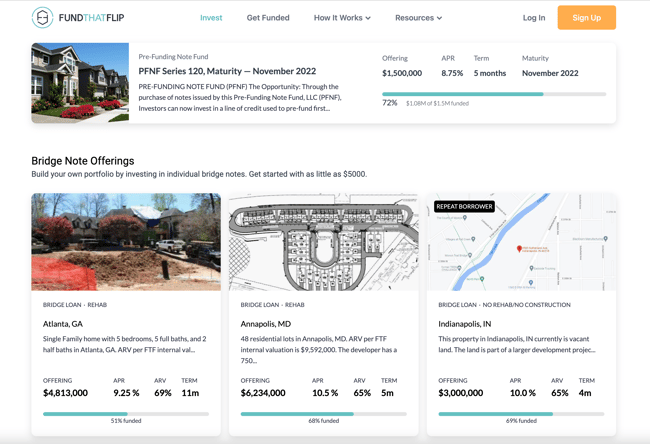The investment world allows for a number of choices to explore, ranging from stocks and shares to bonds to cash. These are the more commonly explored investments and are categorized as traditional investments.
Other less-talked-about asset classes are called alternative investments. So, what is an alternative investment? It simply refers to a non-conventional asset category that does not fall under the purview of traditional investments like cash, bonds, or stocks.
Alternative investments may be tangible in the case of collectibles like antiques and art, vintage cars, or baseball cards, among others. They may also be intangible in the form of private equity, hedge funds, or private debt.
Types of Alternative Investments
In considering “what is alternative investing”, it's essential to know the options available. This would effectively broaden your knowledge base, as well as help you make an informed decision on what to invest in. There is a pretty wide range of alternative investment options, and here are some notable picks:
Hedge Funds
Hedge funds primarily make use of a number of select investment strategies to trade in a range of ventures ranging from publicly-traded securities and derivatives to buying major stakes in various startups. Some of these strategies may include volatility arbitrage, long-short equity, quantitative strategies, and market neutral.
Hedge funds are formed as private investment partnerships and can only be explored by either high-net-worth individuals or institutional investors such as pension funds, mutual funds, and endowments. The portfolio is managed by the general partner and they dictate investment decisions as well.
Real Estate
Real estate is regarded as a real asset because there is usually physical and tangible substance involved, like buildings such as investment properties, and land.
Real estate is also one of the largest, oldest, most common, and varied asset classes in the world. In spite of this, attaching accurate value to real estate can be quite the hassle given that there is no way to determine a universally accepted standard for valuation. Every real estate market is different and ever-changing, making it ripe for investors of all types.
Generally, valuation methods such as sales comparables, income capitalization, and discounted cash flow are applied. Real estate also has similarities to some elements of traditional investment such as equity (investors always look to achieve capital appreciation by boosting an asset’s long-term worth), and bonds (since tenants pay property owners some rent for use of property).
Private Equity
Private equity generally describes equity capital injected into private companies; in other words, investment in companies not publicly listed on say, the Nasdaq exchange.
The capital is typically used to acquire a controlling stake in the company and used to accelerate the growth of the company too. In certain cases, the private equity firm may assume an active role to effectively help with intellectual and financial management expertise, mentoring, and talent sourcing, among others.
The funds can only be recovered either by selling the company off or taking the portfolio company public via an IPO or initial public offering. This allows the private equity company to liquidate its stake. Private equity firms may operate in various ways:
- Buyouts involve purchasing the division of a company or the entire company
- Venture capital involves investing in ventures in their early stages or startups
- Growth capital involves investing in bigger companies that are either looking to restructure or expand
Collectibles
Collectibles are a class of alternative investments that mainly deal with rare items perceived to be highly valuable. These physical items are maintained in prime conditions with thoughts and assurances that their value would increase over time.
Collectibles can be a pretty risky venture due to factors like funds being tied up until the item(s) is sold, likely damage in the event of improper storage, and theft. They usually need to be stored under certain specific conditions to maintain their integrity and require a measure of experience in dealing with them.
Some of these items include:
- Fine art
- Vintage cars
- Mint-condition toys
- Baseball cards
- Comics
- Coins
- Stamps
- Rare wines
- Jewelry
.png?width=600&name=Blog%20Image%20Resizing%20600%20%C3%97%20325%20(2).png)
'The Art Gallery of Jan Gildemeester Jansz' is a fine art painting from 1794 by Dutch painter Adriaan de Lelie, and an example of an alternative investment.
Private Debt
Both private and public companies can typically access private debt. The debt is regarded as ‘private’ because it is neither financed by banks nor traded on the open market. Historically, these types of loans were often regarded as a last resort for companies as they would be characterized by high-interest rates.
However, as more and more capital has been allocated to the private debt markets in recent years, private debt has become a viable alternative to traditional bank financing or public debt for many companies, particularly for private companies large and small.
Private debt funds, as companies that issue these loans, are known, make money either via payment of an agreed-upon interest rate or repayment of the loan by borrowers. Companies typically leverage the private debt market when they require extra capital to invest in their businesses, and private debt may be a cheaper source of capital than equity.
Commodities
Commodities have been traded for centuries. They are real assets and comprise mainly natural resources such as natural gas, oil, industrial and precious metals, as well as agricultural products.
They are known for their stability and are not much impacted by movements in public equity markets. As a result, commodities are regarded as a hedge against inflation.
On the other hand, the value of commodities is grossly impacted by forces of demand and supply; a higher demand implies higher prices and more profit for investors and vice-versa.
Pros and Cons of Alternative Investments
Examining alternative investments from both ends of the spectrum; the pros and cons are important so you can better weigh your decisions when making investment choices.
Pros of Alternative Investing
Reduced Volatility
The broad market has a minimal impact on alternative investments since they are less exposed. This significantly reduces the effects of market volatility.
Low Correlation
Since traditional investments and alternative investments have a low correlation, alternative investments may thrive when traditional investments are not performing optimally.
Hedge Against Inflation
Commodity options and futures could serve as an effective hedge against falling or rising prices. Certain alternative investments such as real estate, oil, or gold could also be instrumental in hedging inflation risk.
Bigger Profits
Alternative investments can be a high-risk, high-returns game. The profit margin generally exceeds those common to traditional investments significantly.
Cons of Alternative Investing
Low Liquidity
Liquidity is greatly limited in the alternative investments market since there is no public trading, and as a result, buying or selling these investments can be a hassle.
Some of the investment options available such as private equity funds and hedge funds typically employ measures like fund lockups whereby investors commit to funds being locked away for a period of time.
High Benchmark of Minimum Investment
Minimum rates for investment are not set to allow the average individual in. This barrier to entry is quite effective in keeping only a few players in the game.
Difficult Value Determination
Value determination of certain alternative investment items is subject to the appraiser’s opinion, signaling possible error due to subjectivity. There is no market price for comparison, and as a result, value determination can be difficult.
High Risk
Alternative investments may employ highly risky strategies, relative to those employed in traditional investments. This risk is sufficiently high so that while huge profits can be made, heavy losses can be incurred as well.
Limited Regulation
Alternative assets that are not registered with the SEC are not regulated. However, their practices may be reviewed under the scope of the Dodd-Frank Act.
Conclusion
Alternative investments are the path less taken and are usually restricted to a select few. They may present a major source of massive profits, with a significant risk level too. If you would be venturing into this world, be sure to learn all you need to know or talk to a financial advisor, so that you can make logical, informed, and practical investment decisions to reach your goals.
Make your money work harder for you. Passively invest in real estate to earn income without leaving your couch.






